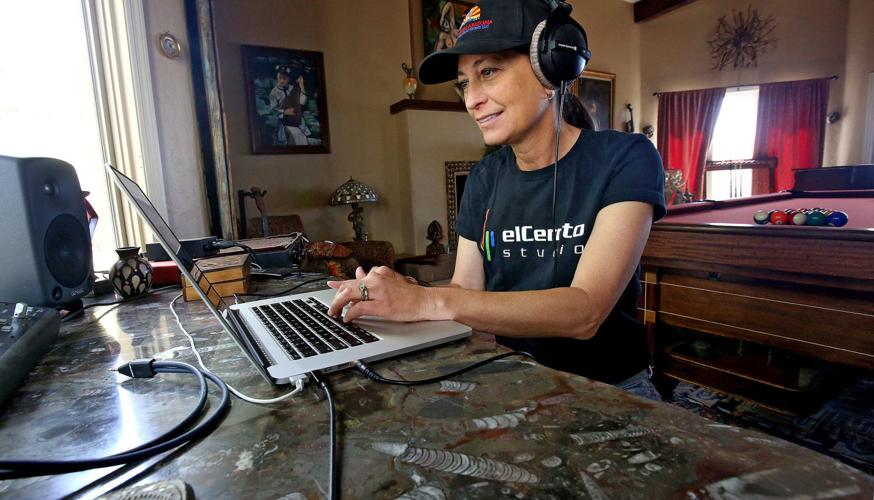Tucson Grammy nominee Linda Chorney is spearheading a petition to change the way future nominees are selected.
Chorney and a group of indie artists want the Recording Academy — which gives out the Grammy Awards — to ditch its national review process, especially in the American Roots category that includes jazz, blues and American roots where many of the independent artists are likely to be nominated. The review committees, which are used for most categories, take the top 15 vote-getters selected by Grammy members and winnow that down to five finalists for each category.
Under the process, which has been in place for several years, the committee also can throw in two wild-card nominees, bringing the total to 17, according to Grammy rules.
The Grammys used to have a system where the top five vote-getters were finalists, which is how Chorney found herself on the short list with big name stars including Emmylou Harris and Lucinda Williams for Best Americana Album in 2012. She lost to multiple Grammy winner Levon Helm.
Chorney’s improbable nomination came after she reached out to Grammy voters through the Recording Academy’s Grammy365 members-only social media site. In the months before the nominations were announced in late 2011, Chorney asked fellow Grammy members to listen to her album “Emotional Jukebox.” The outreach, similar to the “for your consideration” outreach filmmakers make in the weeks leading up to the Golden Globe Awards, was praised at the time by Recording Academy President Neil Portnow. He told Billboard magazine that Chorney’s nomination “shows everybody has a shot.”
But the following year, the academy quietly changed the rules and instituted the expanded nomination and select committee process. In 2014, it did away with Grammy365 and switched over to GrammyPro, which limits the number of contacts you can make with other members, Chorney said.
“We want it to be a democracy again,” she said. “Get rid of the review committees and honor the majority votes, period.”
Since launching the Change.org petition in December, Chorney and a handful of indie artists including 2013 Grammy nominee Al Walser have collected more than 400 signatures.
Chorney said they thought they would only get 100 because many indie artists were hesitant to say anything against the academy.
Flagstaff Grammy nominee Aaron White (best Native American album, 2003), said he didn’t sign the petition, although he supports the overall concept it represents. White’s nomination came well before Grammy365 or any notion of “selection committees.”
“We had to go through a panel that would discuss and pick who the nominees were,” said White, who sings seven nights a week at venues throughout the state including resorts in Phoenix and clubs in Flagstaff. “We were actually handpicked by a juried panel.”
Grammy officials said members can submit suggested rule changes through March 1 to be considered for the next award year. And Chorney, who wrote a book (“Who the F**k Is Linda Chorney?”) about her Grammy experience that she made into a movie (“When I Sing”), said her group plans to honor that process.
“But most people’s ideas fall on deaf ears,” she said, calling the petition her group’s bullhorn. “We’re screaming out the petition so that they hear.”





